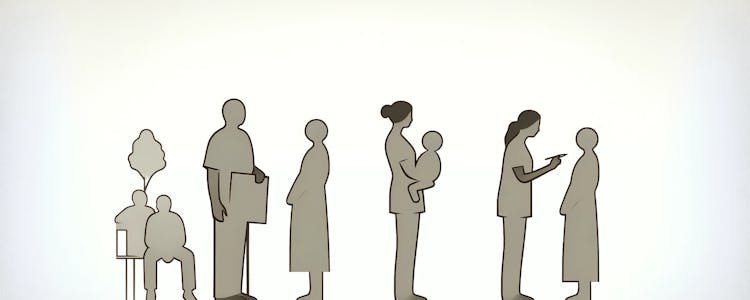Case Management for Community Health
At the heart of many community health organizations lies a fundamental strategy known as case management, which wraps patients, especially those navigating complex health challenges, in a blanket of comprehensive care. This approach isn't just about treating symptoms; it's about recognizing individuals in their entirety, understanding their journeys, and crafting a path forward that's as unique as they are.
Let's walk through this journey step by step:
Getting to Know the Patient
It starts with a keen eye and a listening ear. Case managers reach out to those who stand to gain the most from personalized care—people living with chronic illnesses, those experiencing high-risk pregnancies, individuals grappling with mental health struggles, or anyone overwhelmed by life's hurdles, such as homelessness. The case manager dives deep into each patient's story, exploring their medical past, their present health, their living situation, and any obstacles that might block their path to wellness.
Crafting the Care Plan
From this rich tapestry of information, a care plan is woven, tailored stitch by stitch to the patient's needs and dreams. It charts out the medical care required, plots milestones for health and happiness, and identifies the support network needed. This plan isn't crafted in isolation; it's a collaborative effort involving the patient, their loved ones, and their healthcare team.
Connecting the Dots
In the complex web of healthcare and social services, the case manager acts as the connector, ensuring patients have access to the medical care, mental health support, medication, and community resources they need. It's about making sure no one falls through the cracks.
Keeping the Pulse
The journey doesn't end with the plan's creation. Case managers stay by the patient's side, checking in, tracking progress, and tweaking the plan as the journey unfolds. This continuous loop of monitoring and feedback is vital for catching new challenges early and adjusting the course as necessary.
Being the Champion
Case managers are more than organizers; they're advocates and cheerleaders. They empower patients to navigate the healthcare maze, make sense of their insurance benefits, and make informed choices. Their support extends beyond the clinic, offering a shoulder to lean on and encouragement to keep moving forward.
Building Bridges
Rooted in the community, case managers have the unique ability to bridge the gap between patients and local resources, from support groups to educational workshops, enhancing the fabric of care with the strength of community ties.
Measuring Success
The final step is reflection—looking back to see how far they've come. By evaluating patient outcomes and the effectiveness of care plans, case managers not only celebrate the victories but also learn how to make tomorrow's journey even smoother.
Through case management, community health organizations don't just treat patients; they care for people, addressing health in its broadest sense and weaving a safety net that catches physical, emotional, and social needs. This holistic, patient-first approach not only leads to better health outcomes but also paves the way for a more sustainable, cost-effective healthcare system, making a healthier, happier community one person at a time.
